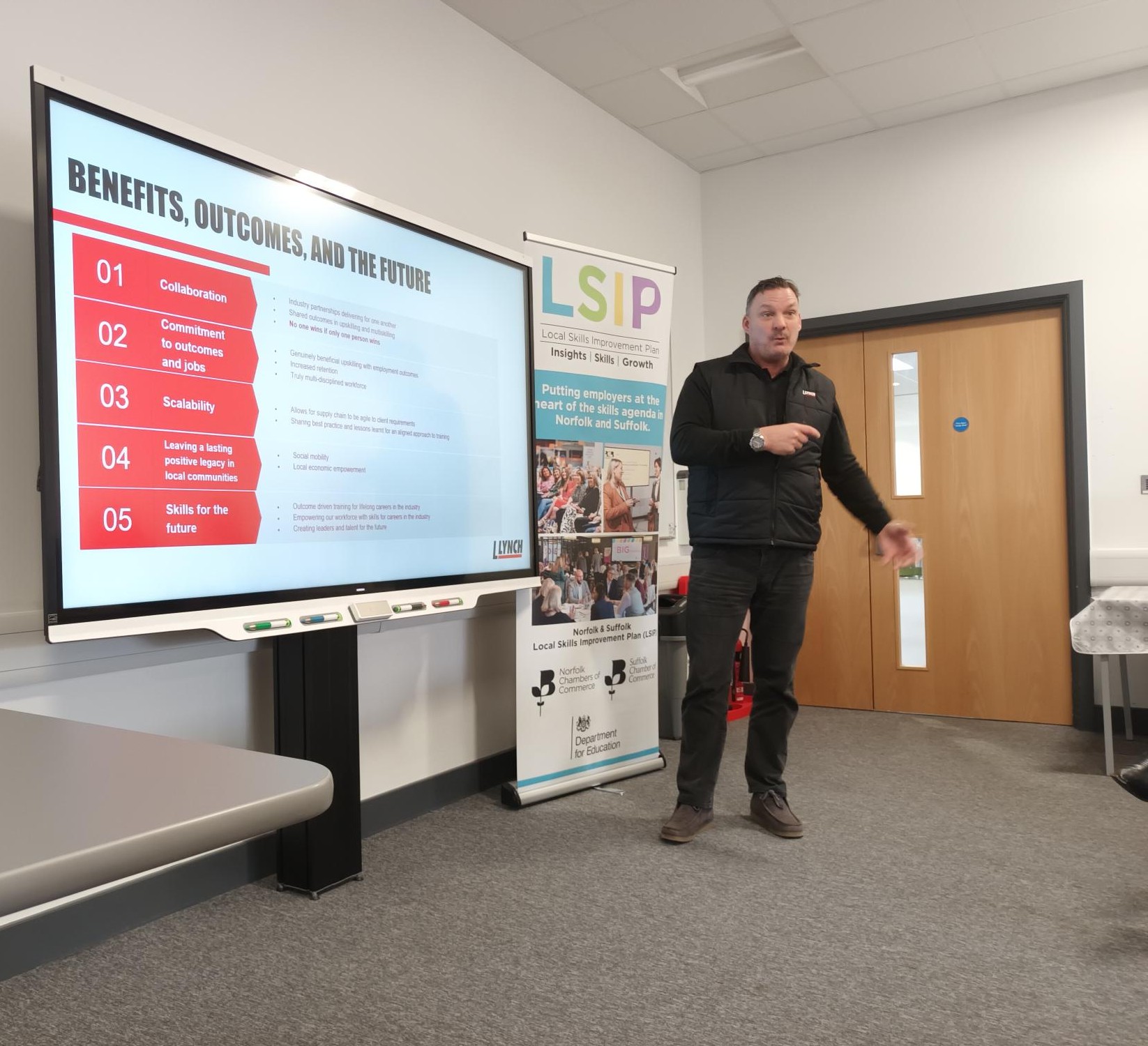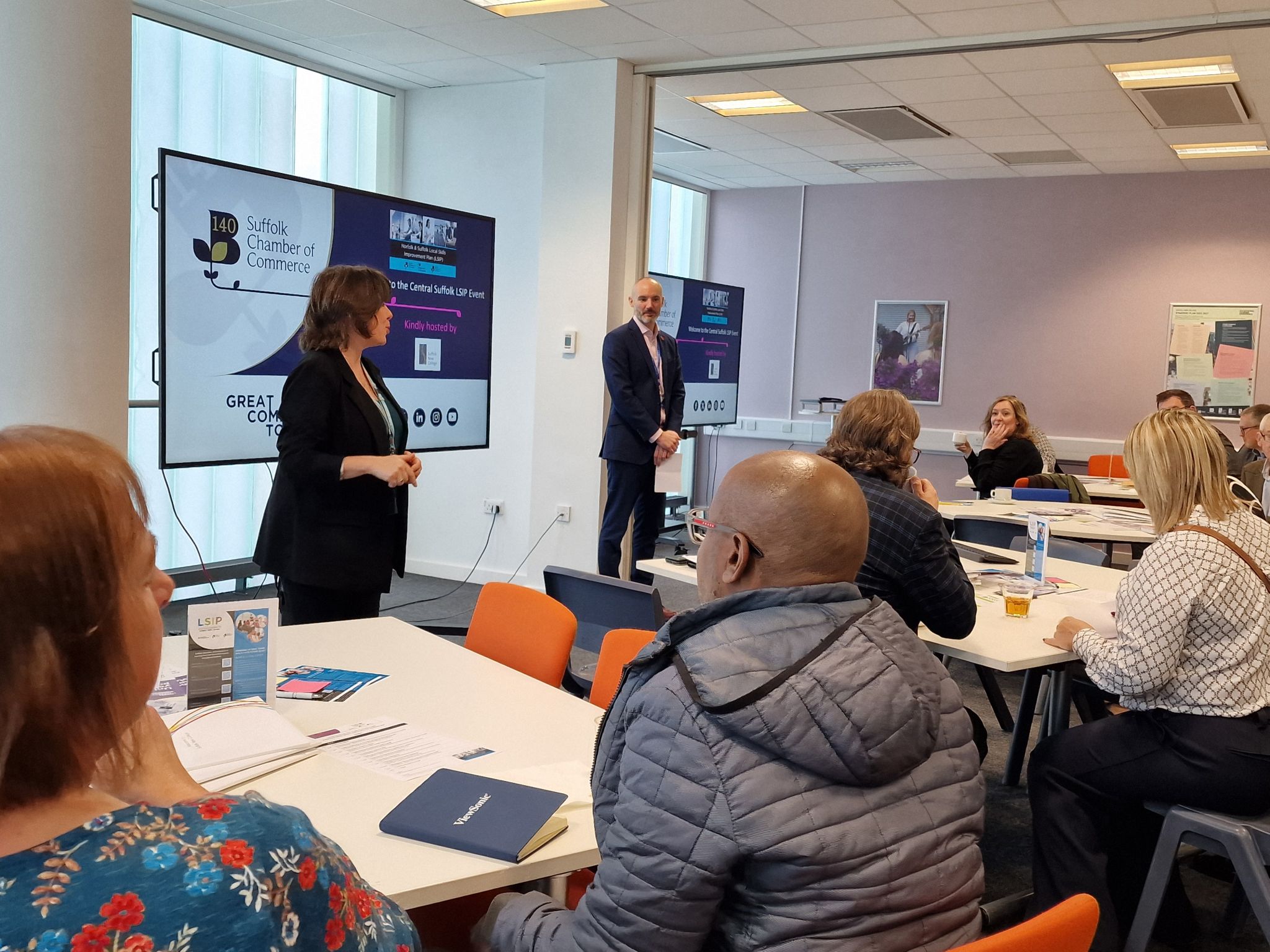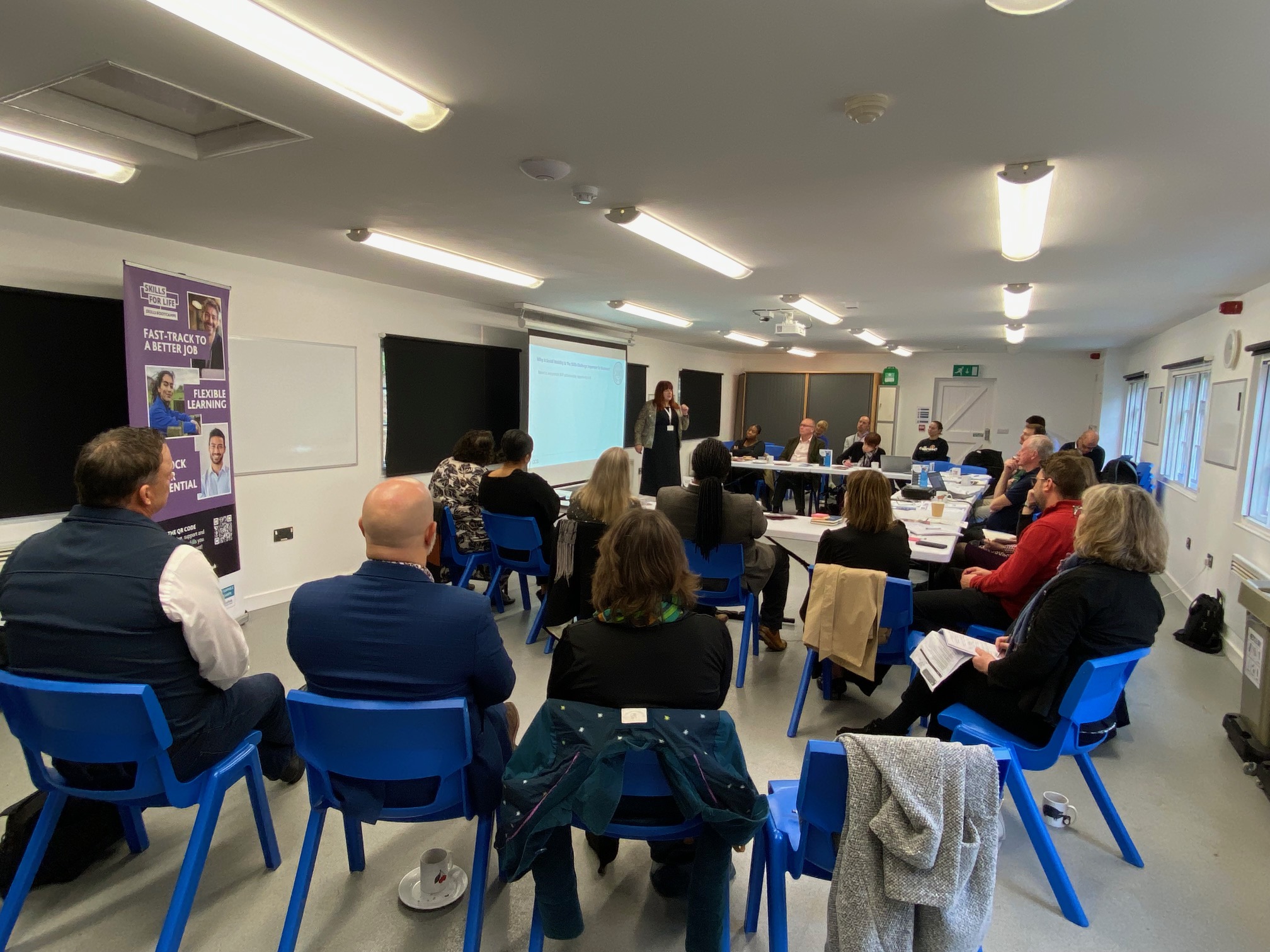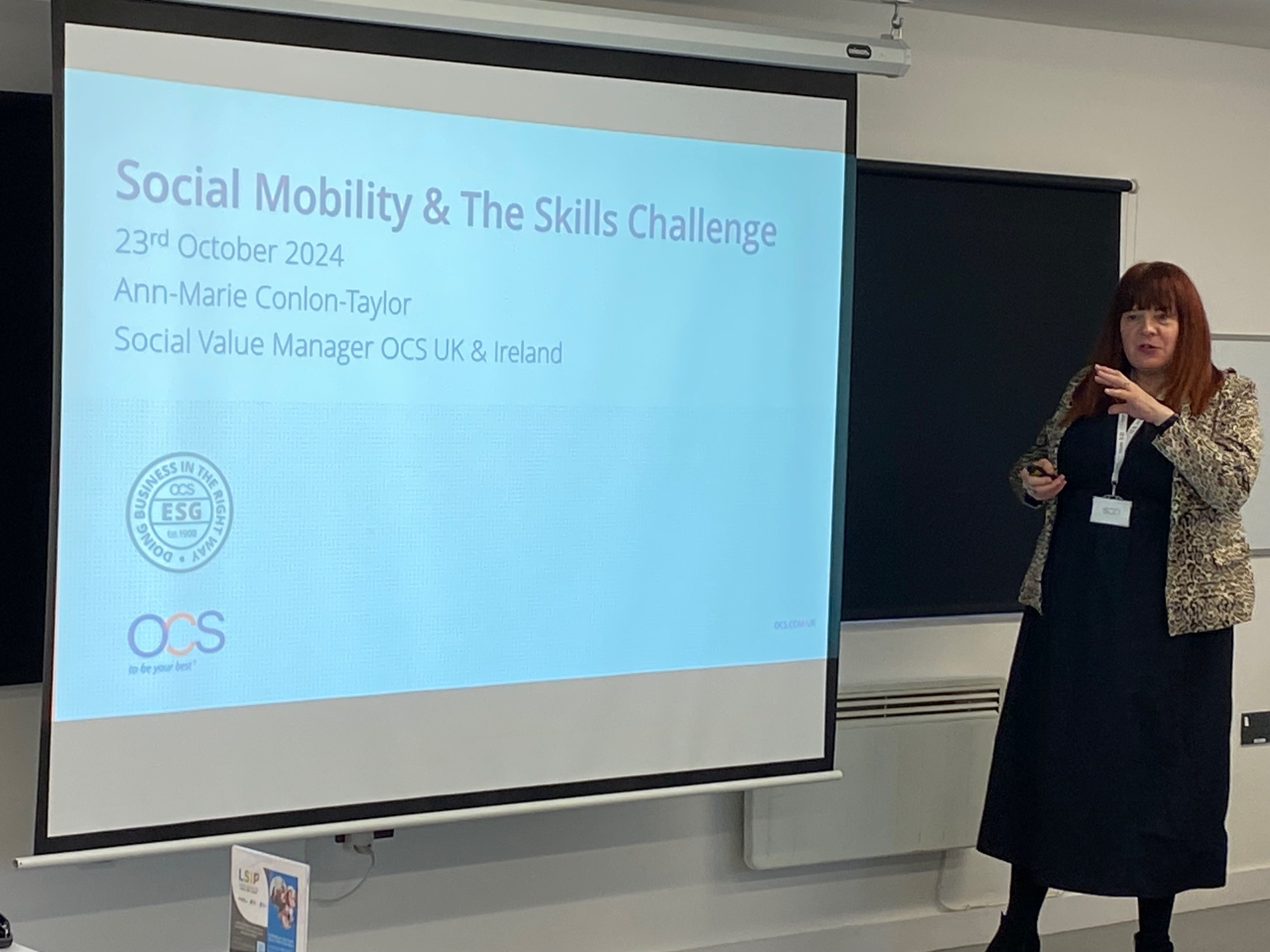Business leaders from a wide range of industries gathered this month to tackle the skills challenges facing the local workforce in Suffolk. The event, which took place at Venue 16 in Ipswich, was part of the Norfolk and Suffolk Local Skills Improvement Plan (LSIP), spearheaded by the Norfolk and Suffolk Chambers of Commerce, helping to align education and training with the needs of the local labour market.
Participants shared their experiences in attracting and retaining talent, while guest speakers, including Nick Fleming, Head of People Development at Anglian Water; Leanne Gittins, Managing Director of LME Recruitment; and Paul Smith, Training Coordinator at PCE Automation, shared their insights and highlighted the critical role that further education and training providers play in closing the gap between education and employment.
At the event Nick Fleming emphasised the importance of creating meaningful career paths, stating, “At Anglian Water, we are very proud to retain 88% of our apprentices after 10 years, ranging from school leavers to our oldest apprentice in her 60’s. We are committed to building and developing great people to enable us to deliver our ambitious growth plans, and I think all businesses & education & skills providers need to lean in to the collaborative effort that will be required to build the skills needed for the future growth of the East of England.”
Leanne Gittins, who also serves on the Suffolk Business Board, added, “Events like these are pivotal to pinpoint priority skills and training programmes, and by examining the drop-off points in the journey from school to work, we can collaboratively identify and address these challenges.”
Paul Smith of PCE Automation emphasised the importance of consistency in workforce development: “Our people should be at the heart of everything we do. By investing in young talent through apprenticeships, we are able to infuse fresh perspectives into our operations, which greatly contributes to our success.”
Richard Brame, Senior Director of WTW, chaired the event and highlighted the significance of the discussions that occurred. “The conversations held today have been invaluable in shaping future learning pathways and enhancing collaboration between businesses and local training providers. Through these events, Suffolk business leaders are equipping the LSIP to build a more skilled workforce and increase the economic resilience for our county.”
To help continue the dialogue between businesses and educators, Suffolk Chamber of Commerce will host a follow-up LSIP event on 5 August, this time inviting representatives from local colleges, training providers, and universities to share their experiences and explore collaborative strategies for workforce development.
For more information about this free event and to reserve your place go to: https://my.suffolkchamber.co.uk/calendar_detail.html?eid=B1A06870-8E96-4252-81B2-414A624D740B
Photo: contributed – Chair Richard Brame discusses skills issues with Paul Smith, Leanne Gittins, and Nick Fleming
For more information about Norfolk and Suffolk LSIP go to https://www.suffolkchamber.co.uk/support/business-voice/people-skills/skills-training/local-skills-improvement-plan-updates/








